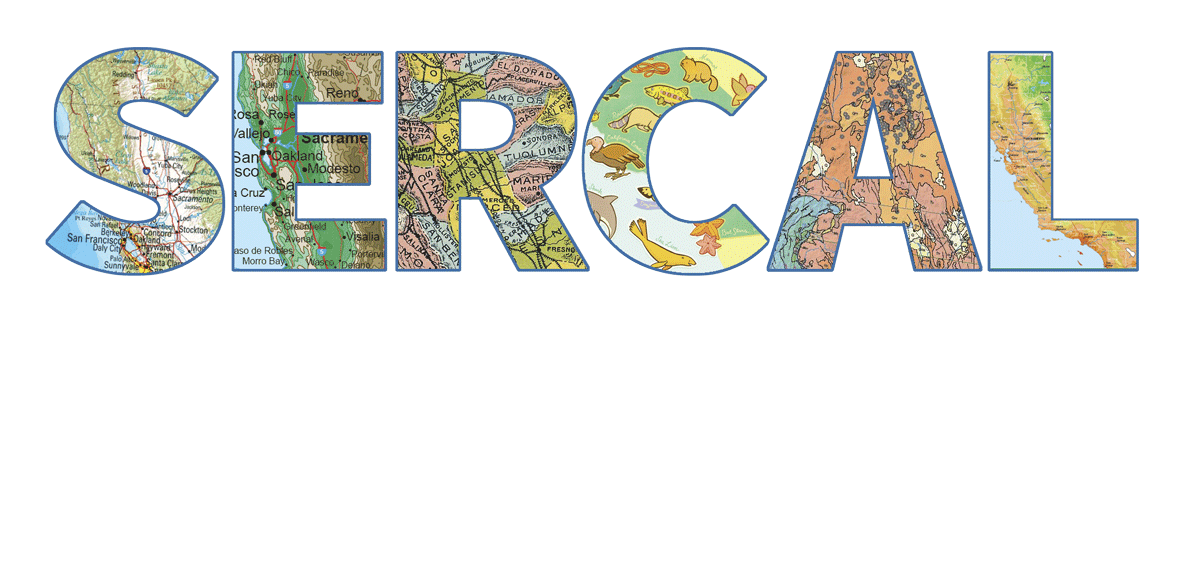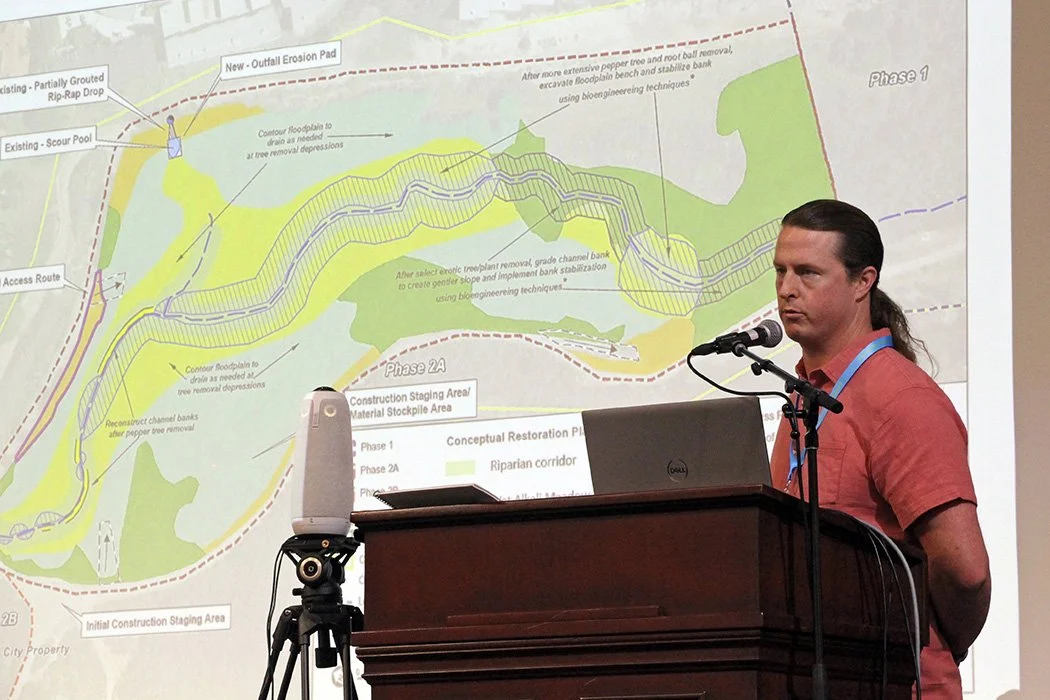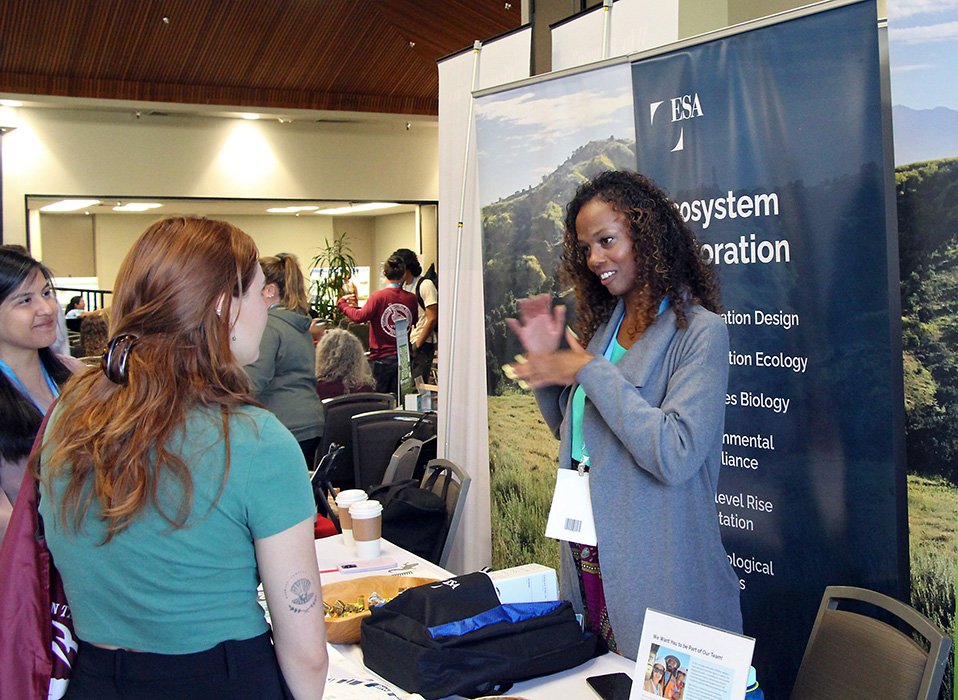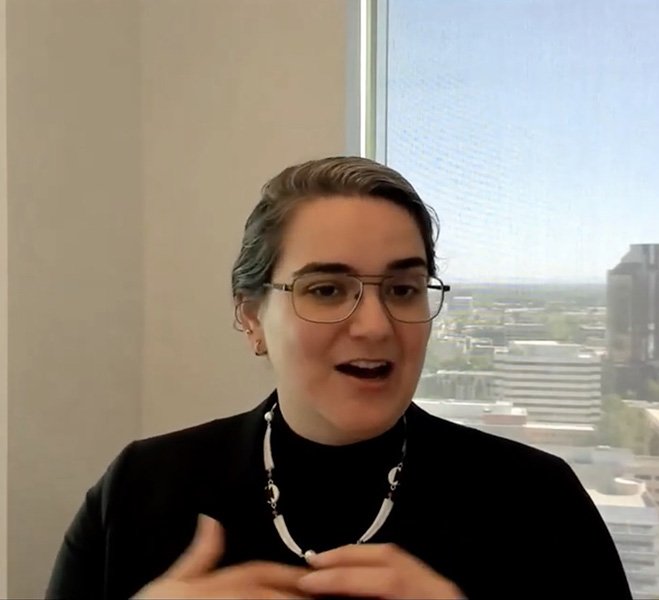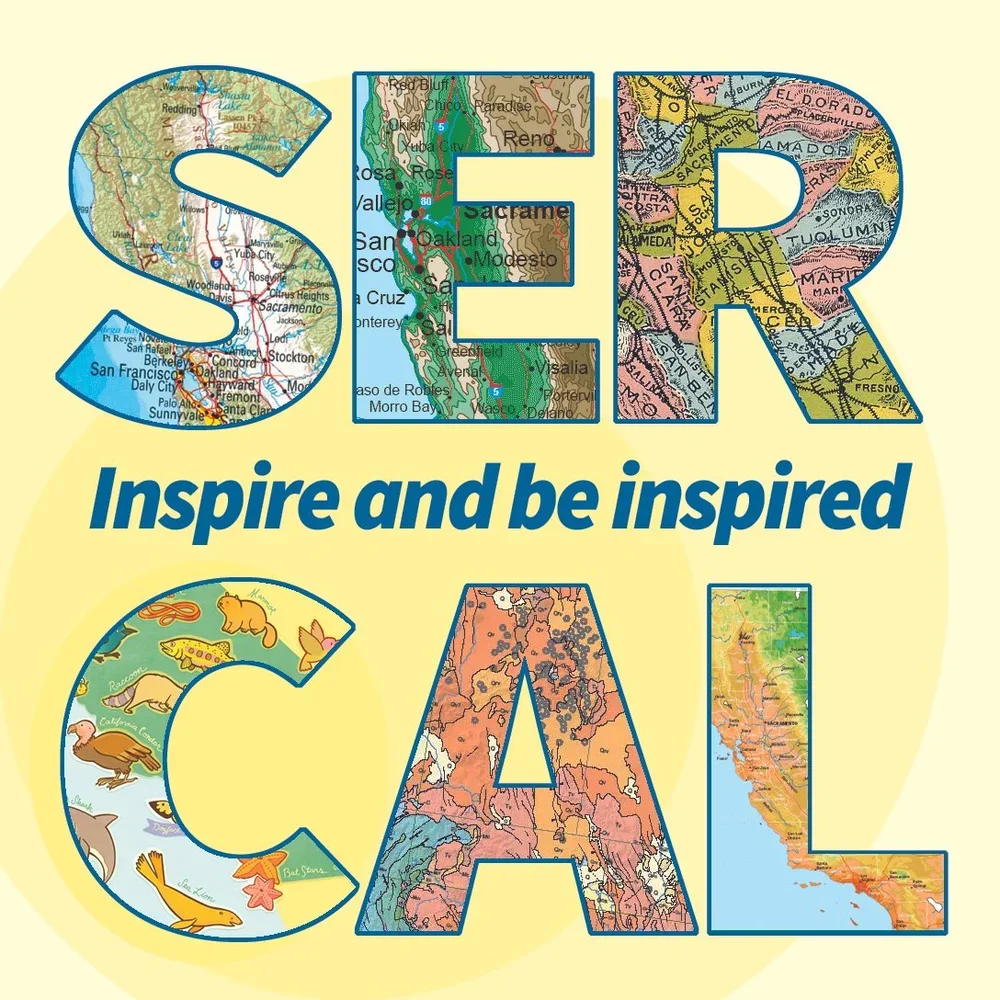SERCAL 2024 Recap: Restoration for All aka the Whole Shebang
Rethinking our annual conference amplified its impact in 2024
What an amazing gathering we had at the University of Redlands in May! Led by the vision of Co-Chairs Lindsay Teunis and Sonya Vargas, supported by the Conference Advisory Committee, and manned and womanned by attending Leadership Team members and Next Gen volunteers, it truly showed that “it takes a village to put on a conference.” ;-) Wielding the power of the group — income from our amazing sponsors, registrations, and the “students at heart” who glamped with us in the dorms — we augmented our support of the “Next Generation” (aka Next Gen) of students and emerging professionals with comped or low-cost lodging, travel reimbursement, and/or carpool coordination. In addition, we continued waiving registration for those who presented and/or volunteered. The return on this community investment (thank you again!) was palpable, inspiring, and you could almost hear the hive buzzing as connections were made. We want to work towards alternating between two conference venues — SoCal and NorCal — with occasional jaunts further afield —Humboldt 2025 anyone? Our experience in Redlands was very positive overall and we would like to find a venue with similar opportunities in the Bay Area / Sacramento region.
What does it mean when we say Restoration for All?
Thank you Mando Valencia for your amazing design, to PrintReady for the tshirts, and to Christine French for the capturing the spirit of the conference with your photos.
Ecological restoration has always attracted a variety of disciplines, industries, endgoals, and skill sets. More and more, our conferences reflect this — from our keynote speakers, to our session themes, to the presenters themselves. Over the last few years, we have specifically targeted the expansion of our conference to Next Gen and members of underserved communities. Our intent? To facilitate a diverse industry that is nimble in how it responds to future challenges. Thus, making SERCAL conferences accessible — easy to get to, affordable to attend — has become a key factor in choosing where we convene.
Planning forward to a more resilient California
Since its founding 30+ years ago, the California Society for Ecological Restoration has been the key statewide organization in advancing the science, art, and practice of restoring California’s native and unique habitats. Most if not all of our work directly contributes to statewide goals, initiatives, and key programs — 30x30, Cutting the Green Tape, water and fire resilience, climate mitigation measures, key public and green infrastructure projects, environmental markets, ecological workforce growth, and public land management, as well as California Fish and Wildlife and State Water Board resource policies.
Meet our first cohort of Torchbearer Recipients
These Torchbearers are set to light the way ahead
California has long been the standard-bearer of forward-thinking initiatives and programs in the U.S. and the field of Ecological Restoration is no exception — both the Society for Ecological Restoration and SERCAL (a former chapter) were founded in our state within a few years of each other and by many of the same leaders. Considering California’s wide breadth of ecosystems and equally broad array of state initiatives, academic programs, and professional disciplines, it makes sense that we have a lot to share with colleagues from beyond our borders. For instance, at this year’s conference, our keynotes were presented by 2022 Goldman Prize winner Nalleli Cobo of STAND-LA, Octavio Lopez of Nacion Verde, and Deputy Secretary of Tribal Affairs Geneva E.B. Thompson of the California Natural Resources Agency. We have much to learn from and share with our colleagues south of the U.S. border and, as we are realizing, in other parts of the world.
In late 2023, SERCAL inaugurated the Torchbearer Sponsorship ($500) for funding the attendance of Next Generation participants who would not otherwise be able to attend. We are deeply grateful to Ross Taylor & Associates, Ecological Concerns, H. T. Harvey and Associates, and Dudek / HRS for their foresight and generosity. While no one planned for our first cohort of Torchbearers to be international students, it seems fortuitous that we are making connections across borders — connections which stand to benefit California and the larger global community. Please meet 2024’s Cohort:
We would like to recognize the gifts large and small — whether through add-on gifts, raffle items gifted, or raffle tickets bought — it takes a village to support the Next Gen, and the members of our community have such large hearts. Thank you!
Grace Chikaodi Dominic — This Spring, Grace graduated from the Yale School of the Environment with a Master of Forestry degree. At Yale, she specialized in natural resource management and nature-based climate solutions. Her interests lie in the interconnection between people and nature, which led her to engage in agroforestry projects to reduce deforestation and promote afforestation. These projects focused on mitigating human impact on forests while maintaining sustainable livelihoods. Currently, Grace is gaining practical experience as an apprentice forester through fieldwork with the Yale Forest School.
Our first cohort of Torchbearers (from left), Grace, Adeyinka, Etinosa, and Onolunose.
Adeyinka Olusanya — Adeyinka is a graduate student in the Department of Geography at Oklahoma State University, where he also serves as a Graduate Research Assistant at the Ecosensing Lab. His research focuses on the sustainability of the food–energy–water nexus using advanced remote sensing and GIS technologies. Adeyinka has made significant contributions to ecosystem management in southwest Nigeria, with his work being published in reputable peer-reviewed journals. Currently, he is studying the impacts of droughts on food, energy, and water production in the Southern Great Plains of the United States, furthering our understanding of environmental challenges and sustainability.
““I decided to participate in SERCAL’s Torchbearers program because of where I am in my fisheries biology and watershed restoration career at age 62. As I near retirement or semi-retirement, I’ve reflected back at opportunities presented to me and the ability to easily access entry-level employment right out of college as a white male in a field dominated by white men. I am so incredibly encouraged by the ever-growing diversity of young people entering the natural resources profession and I want to contribute as much as possible to their growth and success — by participating in mentoring programs and financially assisting young people in attending conferences such as SERCAL, SRF, and AFS. These conferences are so important in making professional and personal connections and should be accessible to all who are interested in attending, yet costs are often prohibitive for students and emerging professionals. It is my time to give back.””
Etinosa Igunbor — This Spring, Etinosa graduated from Western Colorado University with a Masters Degree in Environmental Management. Specializing in wetlands restoration and climate policies and advocacy, Etinosa has witnessed the significant impact of these initiatives on the U.S. system’s carbon mitigation plans and 2050 net zero emission. His research focused on examining how different restoration efforts can enhance carbon mitigation in these wet ecosystems. He is actively exploring the effects of low-tech post-restoration efforts on improving the carbon sequestration potential in these wetlands, thus helping to offset greenhouse gas emissions and tackle climate change. Additionally, the conservation of wetlands not only aids in carbon mitigation but also offers other benefits such as safeguarding biodiversity, enhancing water quality, and boosting resilience to extreme weather events. Through the integration of wetlands restoration into climate policies, his aim is to promote sustainable land management practices that uphold environmental health and societal well-being.
Onolunose Oko-Ose — Onolunose is a Nigerian with an insatiable drive to improve food security while mitigating climate change. She is a graduate of the University of Benin, Nigeria, where she earned a Bachelor of Agriculture in Soil Science. Currently, she is pursuing a Master of Environmental Management at the Yale School of Environment, specializing in Ecosystem Management and Conservation, and Climate Change Science and Solutions. Prior to Yale, Onolunose worked for four years as an Agricultural Research Officer with the Edo State Ministry of Agriculture and Food Security in Nigeria. She has extensive experience in sustainable agricultural practices and is currently intrigued by digital agriculture and its role in environmental sustainability. At Yale, she is a co-lead of the Yale Environmental Women Student Interest Group and a member of the Student Affairs Committee’s Academic Team. During the summer of 2024, Onolunose is interning with the Environmental Defense Fund’s Climate Smart Agriculture Team as an Agricultural Methane Solutions Intern. In this role, she focuses on reducing methane emissions without compromising agricultural productivity. She will be liaising with experts both within EDF and externally to develop an understanding of the Measure, Monitor, Report, and Verification (MMRV) requirements needed to support on-farm adoption of agriculture methane solutions. Additionally, she will be developing a roadmap for the creation of digital wallet pilots in China and India. Onolunose wants to express that she is deeply honoured to be one of the first recipients of the Torchbearer Award. Attending the SERCAL conference was an inspiring and transformative experience. She thanks SERCAL and its sponsors for this incredible recognition and opportunity, and looks forward to contributing to the SERCAL community and working together towards a sustainable future.
And yes, we’ll be announcing dates and location soon. ;-)
Watch for the Call for Abstracts announcement in October. See you soon!
